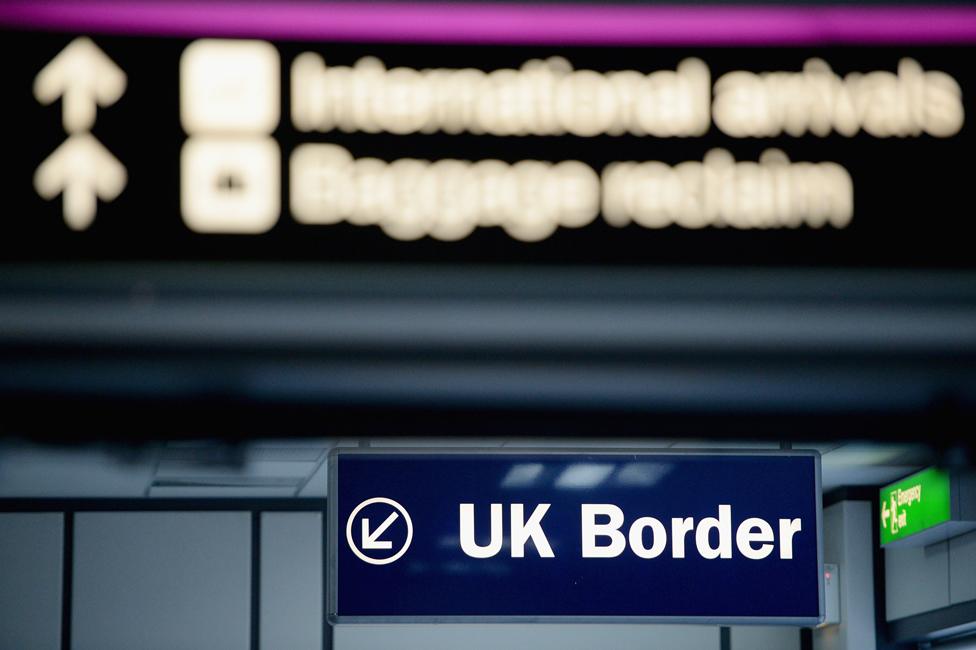Has the government abandoned its net migration target?
- Published

The Conservative manifesto promises to reduce net migration to the UK to the tens of thousands by 2020, but in calculating the cost of Britain leaving the EU in yesterday's report, the Treasury assumes a level still well in excess of that - of 185,000 per year in 2021 and beyond.
Asked to explain whether the government has quietly abandoned its pledge, the Treasury said the UK would probably have to accept the status quo on EU migration as the price of continued access to European markets. "No country has been able to agree significant access to the single market without having to accept EU regulations, financial contributions to the EU and the free movement of people" it said.
Critics have suggested the Treasury's "Brexit" calculation demonstrates that the department has no real ambition to see radical reductions in net migration. In the year to September 2014, net migration to the UK was 323,000, according to the Office for National Statistics.
Last month the Office for Budget Responsibility (OBR) said that "net international migration to the UK is an important driver of the economy's underlying growth potential" and leads to a higher employment rate and lower dependency ratio (the number of children and elderly compared to the total population).
The OBR's central budget projection assumes net migration of 185,000 by 2021 (they clearly think it unlikely the government will be able to get net migration down to the levels they promised), and it is this modelling that was included in the Treasury report on the costs of leaving the EU.
The OBR also looked at higher and lower migration scenarios. A "zero net migration" model, it suggests, would lead to GDP 1.9% lower than currently projected and a fall in house prices of 3%, while a higher net figure of 265,000 by 2012 would see GDP 0.8% higher and house prices up an additional 1.3%.
While the OBR assumes that net migration has a positive impact on the economy in the medium-term, those wanting to leave the EU argue that controlling our borders and reducing immigration would be in Britain's long-term interests.
"At the moment any EU citizen can come to the UK to settle, work, claim benefits and use the NHS," leave supporter Michael Gove said at a Leave campaign event today. "We have no proper control over whether that individual's presence here is economically beneficial, conducive to the public good or in our national interest."
The pressure group Migration Watch argues that the effect of immigration on the UK economy is "essentially negligible" and claims there is broad agreement that it harms the earnings of the most poorly paid UK-born members of the labour force.
The OBR also makes the point that looking ahead 50 years, immigrants arriving now would add to age-related spending pressures. "Higher migration could be seen as delaying some of the fiscal challenges of an ageing population rather than a way of resolving them permanently", it argues.
Nevertheless, it is surprising that the Treasury's calculations don't engage with the immigration debate, given its centrality in the leave campaign's argument. Many economists argue that Vote Leave's aim to reduce net migration from the EU following "Brexit" would have a negative impact on economic growth, at least in the short term.
It is likely those making the pro-EU case would rather the referendum debate was focused on household incomes rather than immigration and that may be why the impact of changes to net migration was curiously lacking from yesterday's Treasury report.